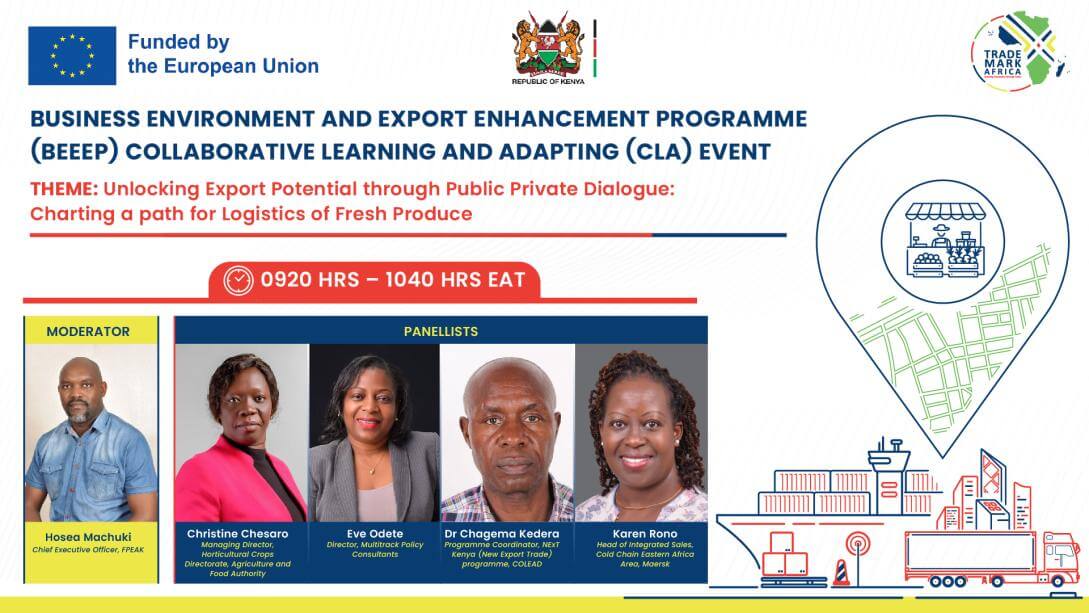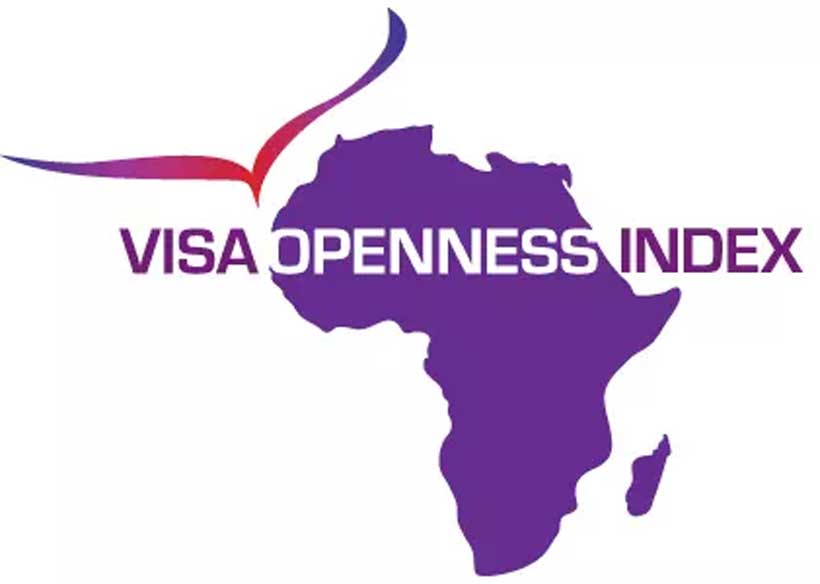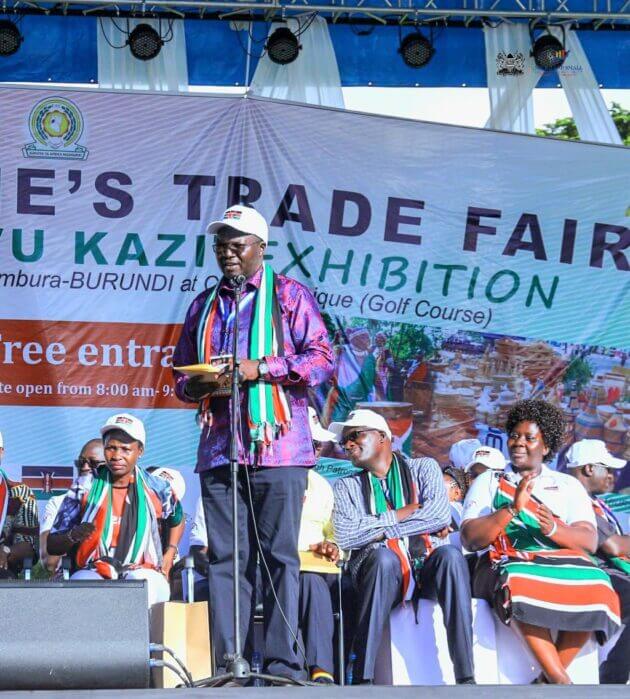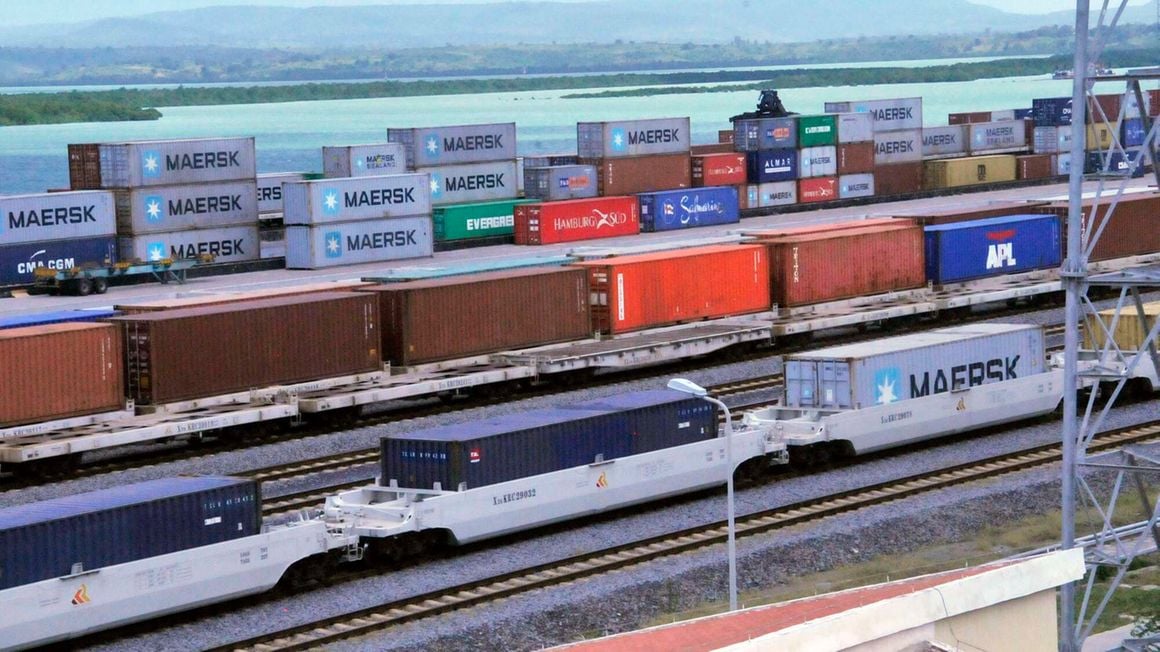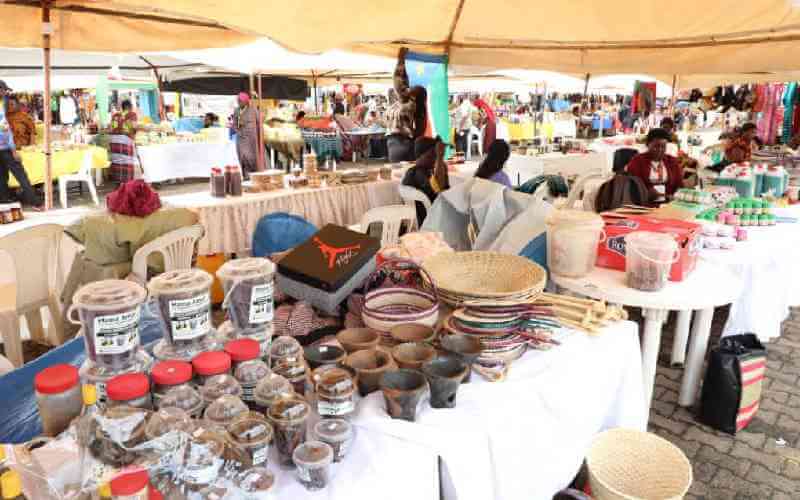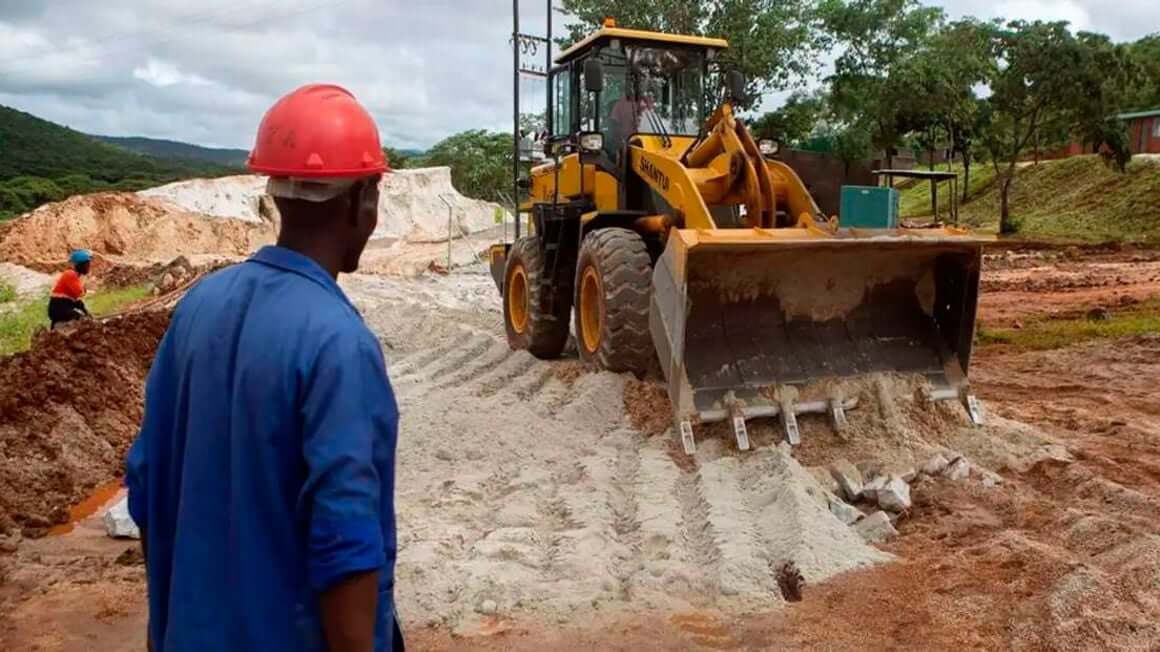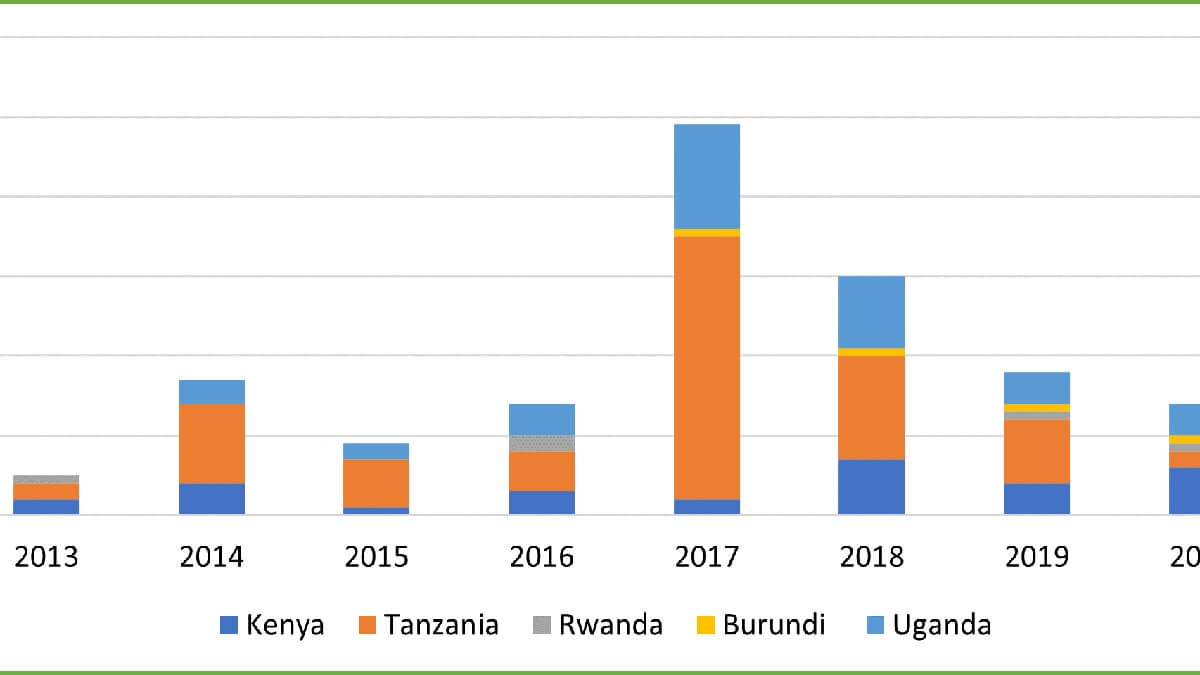TradeMark Africa (TMA) has signed a technical and financial support agreement with the National Horticulture Taskforce (NHT). The two partners committed to strengthen and sustain investments in Kenya's fresh produce exports. The agreement was signed as part of the EU-funded Business Environment and Export Enhancement Programme (BEEEP), which is among other areas supporting the transition of 50% of fresh produce exports from Kenya from air to sea-freight by the year 2030. The agreement was signed at an event which brought together stakeholders from the logistics sector to assess the state of agro logistics in Kenya and review development of Kenya’s Masterplan on the modal shift of fresh produce exports from air to sea freight. Kenya’s transitioning from airfreight to seafreight is not only an environmental choice but a vital economic advantage to secure its fresh produce exports, as supermarkets in the UK and Europe seek to diminish their climate footprint. Airfreighting from Kenya to Europe generates substantially higher greenhouse gases compared to sea freight (1 kilogramme of airfreighted green beans emits as much as 177 kilogrammes of sea freighted green beans). Part of the targeted initiatives by the NHT include building the capacity of producers of horticultural products to utilise sustainable processes including the use of renewable energy in farms, implementing various water conservation methods and transitioning exports of fresh produce from air freight to sea freight. Henriette Geiger, Ambassador of the European Union to Kenya said, “We are fully in support of the NHT as we transition the avocado, mango and vegetable value chains towards more sustainable production processes from farm to fork. This also aligns with our...
Green Shift in Kenya’s Horticulture: TradeMark Africa and National Horticulture Taskforce Forge Alliance for Sustainable Export Boost
Posted on: December 15, 2023
Posted on: December 15, 2023

